Gardening in Hoppers Crossing: Your Ultimate Guide to Green Spaces
Introduction to Gardening in Hoppers Crossing
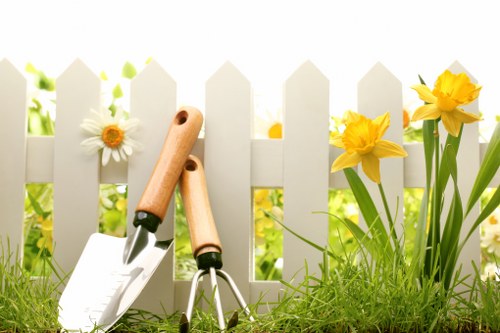
Welcome to the vibrant world of gardening in Hoppers Crossing, where lush green spaces meet the unique climate and soil conditions of this thriving suburb. Whether you're a seasoned gardener or just starting out, this guide will provide you with all the information you need to cultivate a beautiful and sustainable garden.
Hoppers Crossing offers a diverse range of gardening opportunities, from residential backyards to community gardens. Understanding the local environment is key to successful gardening, and this article will explore everything from plant selection to sustainable practices tailored specifically for this area.
In this guide, you'll discover tips and tricks that have been tested and proven by local gardeners. We'll delve into the best gardening techniques, tools, and resources available in Hoppers Crossing to help you achieve a flourishing garden all year round.
Understanding Hoppers Crossing Climate and Soil
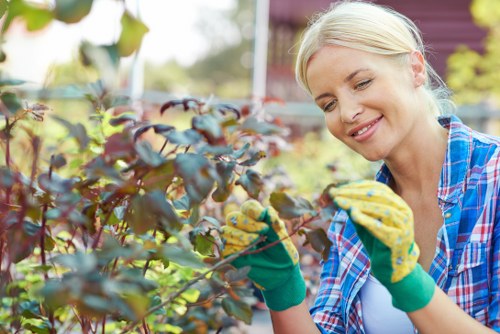
The climate of Hoppers Crossing plays a significant role in determining what plants will thrive in your garden. With a temperate climate featuring warm summers and mild winters, this area is perfect for a wide variety of plants. However, it's essential to choose plants that can withstand occasional heat waves and ensure proper watering during dry periods.
The soil in Hoppers Crossing is predominantly sandy loam, which offers excellent drainage but can sometimes lack in nutrients. To combat this, enriching your soil with organic matter such as compost or well-rotted manure is recommended. Regularly testing your soil's pH levels and nutrient content can also help you maintain optimal growing conditions.
Understanding these local conditions will allow you to make informed decisions about plant selection and garden design, ensuring that your garden not only survives but thrives.
Choosing the Right Plants for Hoppers Crossing
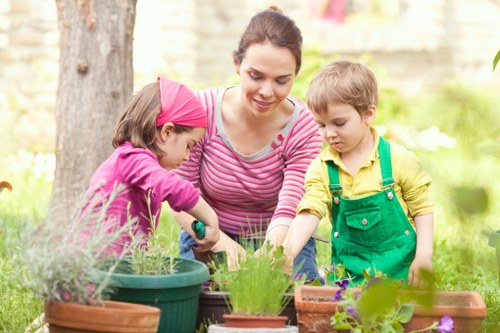
Selecting the right plants is crucial for a successful garden in Hoppers Crossing. Opt for native species that are well-adapted to the local climate and soil conditions. Native plants require less maintenance, are more resistant to local pests, and support the local ecosystem.
Some popular choices include:
- Grevillea – Known for their striking flowers and ability to attract birds.
- Eucalyptus – Provides shade and has a distinctive aroma.
- Lavender – Ideal for adding color and fragrance to your garden.
- Roses – Classic favorites that bring elegance and beauty.
- Succulents – Perfect for low-maintenance gardens.
In addition to native plants, consider incorporating a mix of perennials and annuals to ensure year-round interest. Perennials provide long-term structure, while annuals offer seasonal bursts of color.
Essential Gardening Tips for Local Conditions
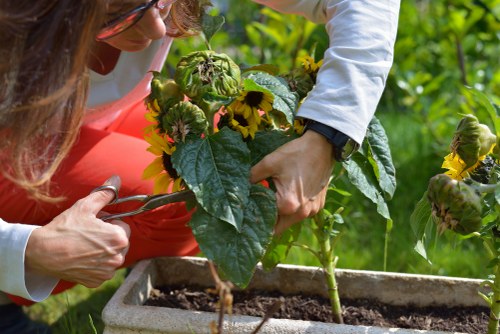
To maintain a healthy garden in Hoppers Crossing, it's important to follow some essential gardening practices tailored to the local environment.
- Water Wisely: With the variable climate, efficient water use is key. Install a drip irrigation system to minimize water waste and ensure deep watering.
- Mulching: Apply a layer of organic mulch to retain soil moisture, suppress weeds, and regulate soil temperature.
- Pruning: Regular pruning helps maintain plant health, encourages growth, and improves air circulation.
- Fertilizing: Use organic fertilizers to provide necessary nutrients without harming the environment.
- Pest Control: Implement natural pest control methods to protect your plants without relying on harsh chemicals.
By following these tips, you can create a resilient garden that withstands the challenges of the local climate.
Sustainable Gardening Practices
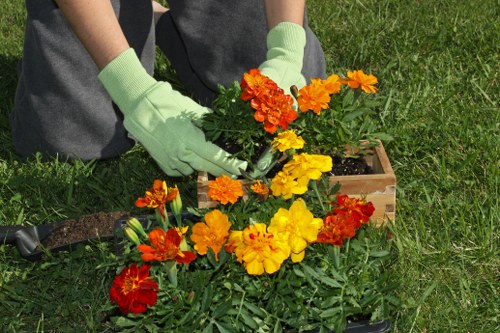
Embracing sustainable gardening practices not only benefits your garden but also the broader community and environment in Hoppers Crossing.
Composting: Recycling garden waste into compost enriches the soil, reduces waste, and lowers the need for chemical fertilizers.
Rainwater Harvesting: Collecting rainwater is an eco-friendly way to water your plants, reducing reliance on municipal water sources.
Native Plant Integration: Incorporating native plants supports local wildlife, including pollinators like bees and butterflies.
Organic Gardening: Avoiding synthetic pesticides and fertilizers promotes a healthier garden ecosystem.
Implementing these practices ensures that your gardening efforts are environmentally responsible and sustainable for future generations.
Seasonal Gardening in Hoppers Crossing
Spring
Spring is the perfect time to start planting new seeds and preparing your garden for the growing season. Focus on planting vegetables, annual flowers, and perennials. This is also the time to prune shrubs and trees before new growth begins.
Summer
During summer, ensure your plants receive adequate water and shade, especially during heatwaves. Continue weeding and deadheading flowers to encourage continuous blooming.
Autumn
Autumn is ideal for planting bulbs for spring flowers and preparing your garden beds for the winter. Mulch your garden to protect plant roots and improve soil health.
Winter
In winter, focus on garden maintenance tasks such as pruning, composting, and planning for the next gardening season. Protect sensitive plants from frost by using covers or relocating them indoors.
Tools and Equipment for Efficient Gardening
Having the right tools can make gardening in Hoppers Crossing more enjoyable and efficient. Invest in quality tools that are durable and suited to your gardening needs.
- Hand Tools: Essential for planting, weeding, and pruning. Include a spade, trowel, pruners, and a garden fork.
- Watering Equipment: A good hose, watering can, and drip irrigation system are vital for maintaining plant health.
- Lawn Care Tools: A reliable lawn mower, rake, and edger will keep your lawn neat and tidy.
- Protective Gear: Gloves, a hat, and knee pads protect you while gardening.
- Storage Solutions: Keep your tools organized with a gardening shed or tool rack.
Regular maintenance of your tools ensures they last longer and perform better, making your gardening tasks easier and more efficient.
Beautifying Your Garden with Local Flora
Enhancing your garden with local flora not only adds beauty but also supports the local ecosystem. Choose plants that are native to the Hoppers Crossing area to create a harmonious and sustainable garden.
Consider incorporating:
- Banksias: Known for their distinctive flowers and ability to attract birds.
- Hakeas: Offer unique foliage and vibrant blooms.
- Native Grasses: Add texture and movement to your garden landscapes.
- Ornamental Ferns: Provide lush greenery and thrive in shaded areas.
- Wildflowers: Create a colorful display and support pollinators.
By selecting a variety of local plants, you can create a dynamic and visually appealing garden that thrives in the Hoppers Crossing climate.
Pest and Disease Management
Managing pests and diseases is essential for maintaining a healthy garden in Hoppers Crossing. Implementing preventive measures can significantly reduce the risk of infestations and plant diseases.
Common Pests
- Aphids: Small insects that feed on plant sap and can stunt growth.
- Slugs and Snails: Damage leaves and stems, particularly in damp conditions.
- Whiteflies: Tiny insects that weaken plants by feeding on their juices.
- Spider Mites: Cause stippling and discoloration of leaves.
Preventive Measures
- Regular Inspection: Check plants frequently for signs of pests or disease.
- Natural Predators: Encourage beneficial insects like ladybugs and lacewings that prey on harmful pests.
- Organic Treatments: Use neem oil or insecticidal soap to control pests without harming the environment.
- Proper Sanitation: Remove dead plant material and weeds that can harbor pests and diseases.
By staying vigilant and using eco-friendly methods, you can effectively manage pest and disease issues in your garden.
Local Gardening Services and Resources
Accessing local gardening services and resources can greatly enhance your gardening experience in Hoppers Crossing. From nurseries to community groups, there are numerous options available to support your gardening endeavors.
- Local Nurseries: Provide a wide range of plants, tools, and expert advice tailored to the Hoppers Crossing climate.
- Community Gardens: Offer opportunities to collaborate with fellow gardeners, share knowledge, and grow plants collectively.
- Workshops and Classes: Learn new gardening techniques and stay updated on best practices through local workshops.
- Gardening Clubs: Join clubs to connect with other gardening enthusiasts and participate in community projects.
- Online Forums: Engage with online communities for tips, troubleshooting, and inspiration.
Leveraging these resources can provide valuable support and inspiration, helping you create and maintain a thriving garden in Hoppers Crossing.
Nearby Areas to Hoppers Crossing
Gardening enthusiasts in Hoppers Crossing are surrounded by several nearby areas, each offering unique features and opportunities for gardening services and community engagement.
- Tarneit: Just north of Hoppers Crossing, Tarneit boasts expansive parks and community gardens perfect for family-friendly gardening activities.
- Wyndham Vale: Known for its lush landscapes and well-maintained public gardens, Wyndham Vale is a great place to find inspiration for your own garden.
- Point Cook: Offers a mix of residential and natural gardens, with numerous nurseries and gardening supply stores.
- Williams Landing: Features beautiful waterfront gardens and a variety of plant nurseries catering to diverse gardening needs.
- Halls Road: A short distance away, Halls Road is home to several boutique garden centers and specialty plant shops.
- Altona Meadows: Known for its community-focused gardening projects and local gardening clubs.
- Laverton North: Provides access to extensive green spaces and recreational parks ideal for gardening enthusiasts.
- Seabrook: Offers coastal gardening tips and a selection of salt-tolerant plants suitable for nearshore conditions.
- Queen Victoria Village: A charming area with heritage gardens and a strong sense of community among local gardeners.
- Truganina: Features innovative urban gardening initiatives and sustainable gardening programs.
- Tarneit East: Home to several educational gardening centers and workshops focused on modern gardening techniques.
- Cranbourne East: Offers diverse gardening landscapes, from botanical gardens to natural reserves.
- Caroline Springs: Provides a variety of gardening services and resources, including landscape design professionals.
Exploring these nearby areas can provide additional resources, inspiration, and community connections to enhance your gardening experience in Hoppers Crossing.
Conclusion
Gardening in Hoppers Crossing offers a rewarding and fulfilling experience, thanks to the area's favorable climate, rich soil, and supportive community. By selecting the right plants, following essential gardening practices, and utilizing local resources, you can create a beautiful and sustainable garden that thrives throughout the year.
Embrace the joy of gardening and transform your outdoor space into a green haven. Whether you're cultivating a small balcony garden or managing a large backyard oasis, Hoppers Crossing provides the perfect setting for your gardening aspirations.
Contact us today to start your gardening journey in Hoppers Crossing and take the first step towards a greener, more vibrant living space.
